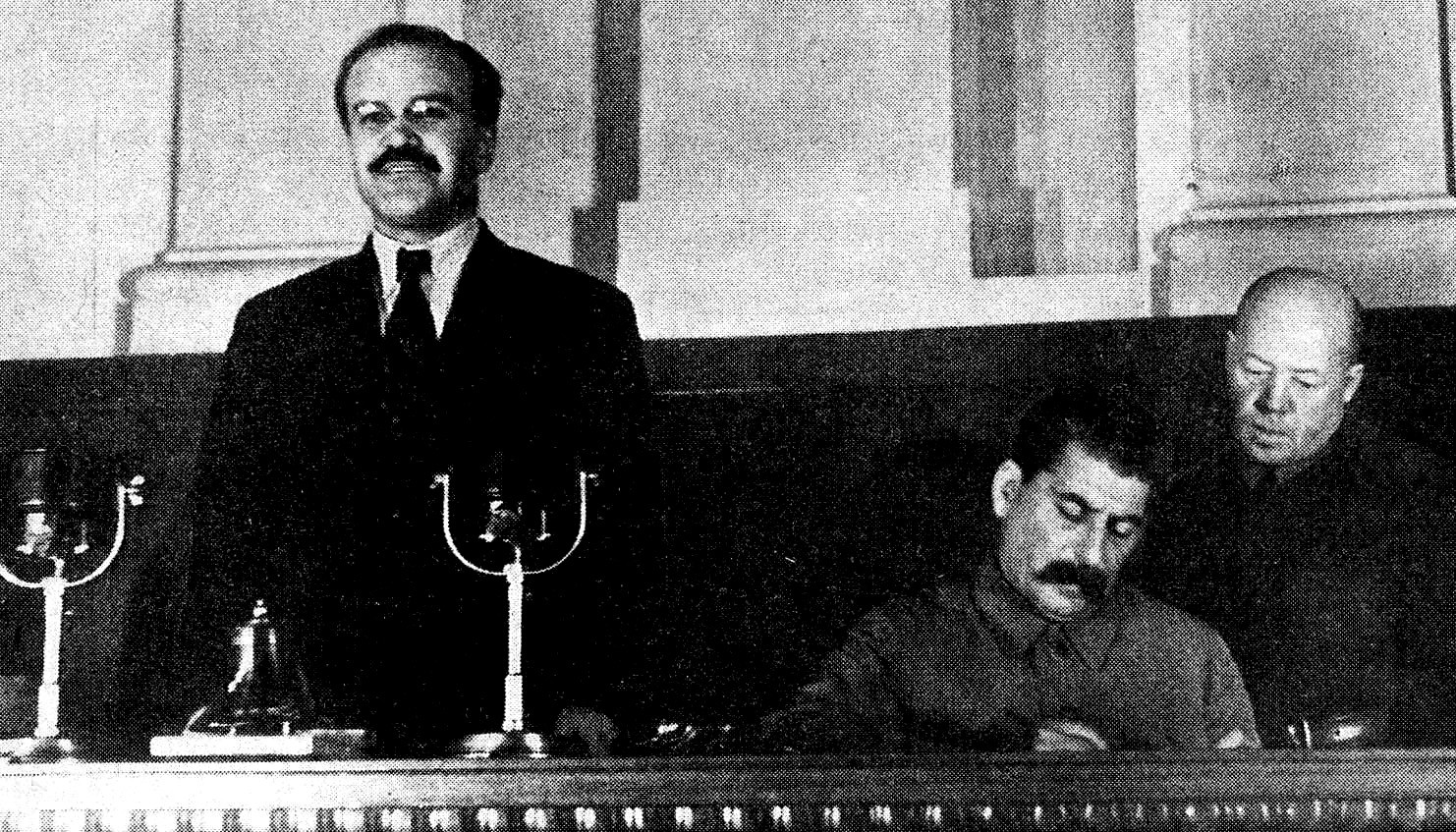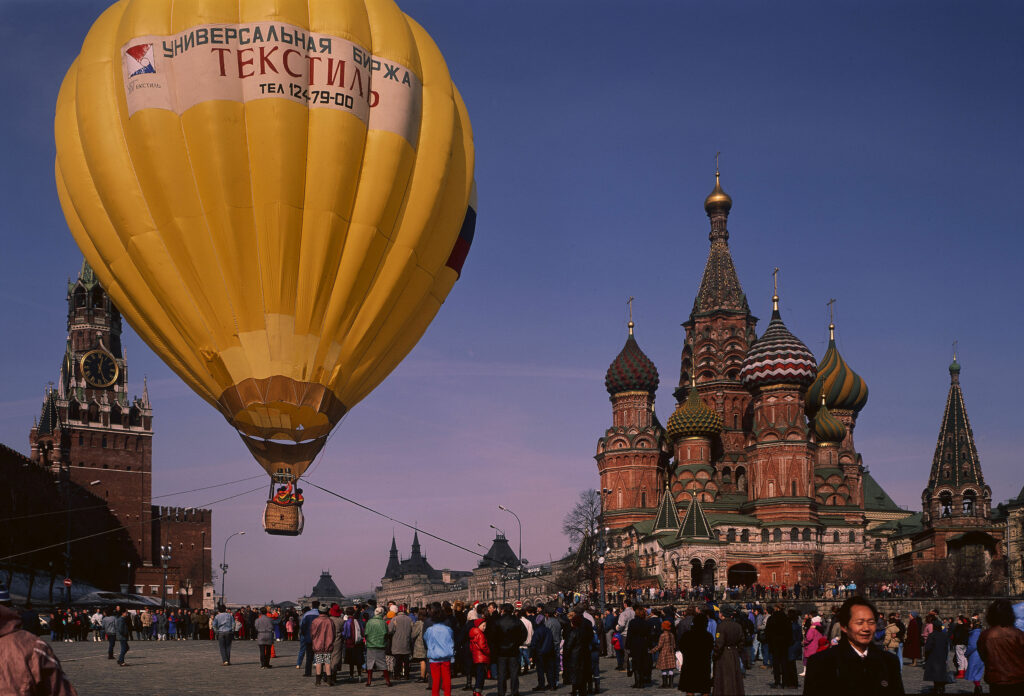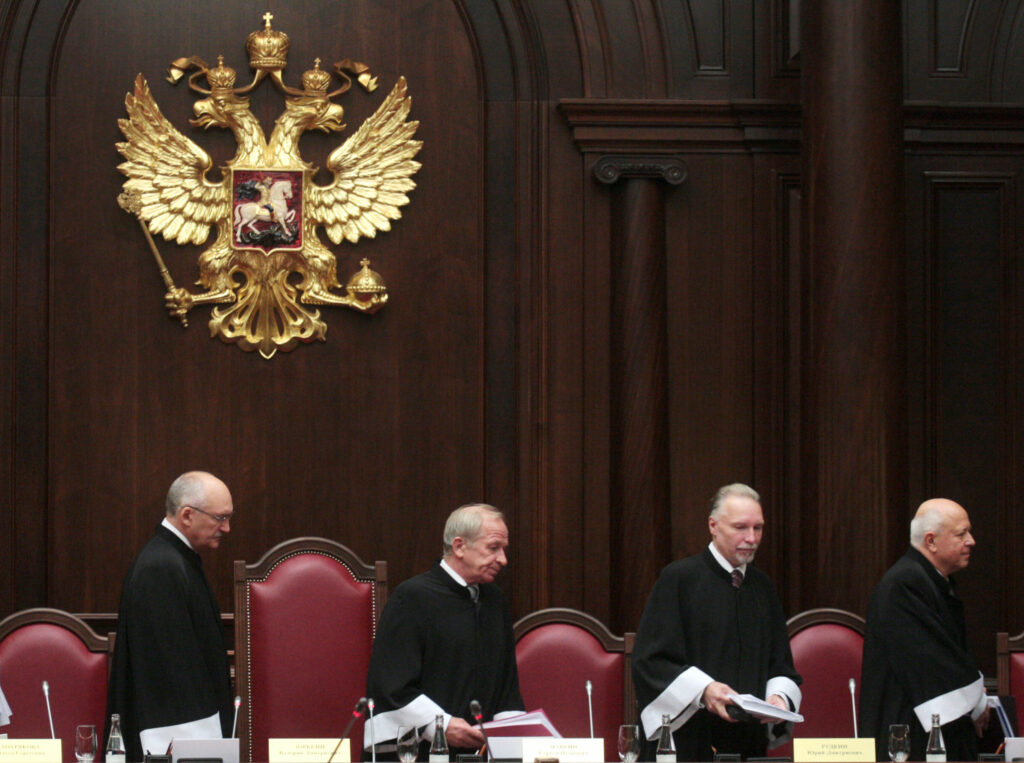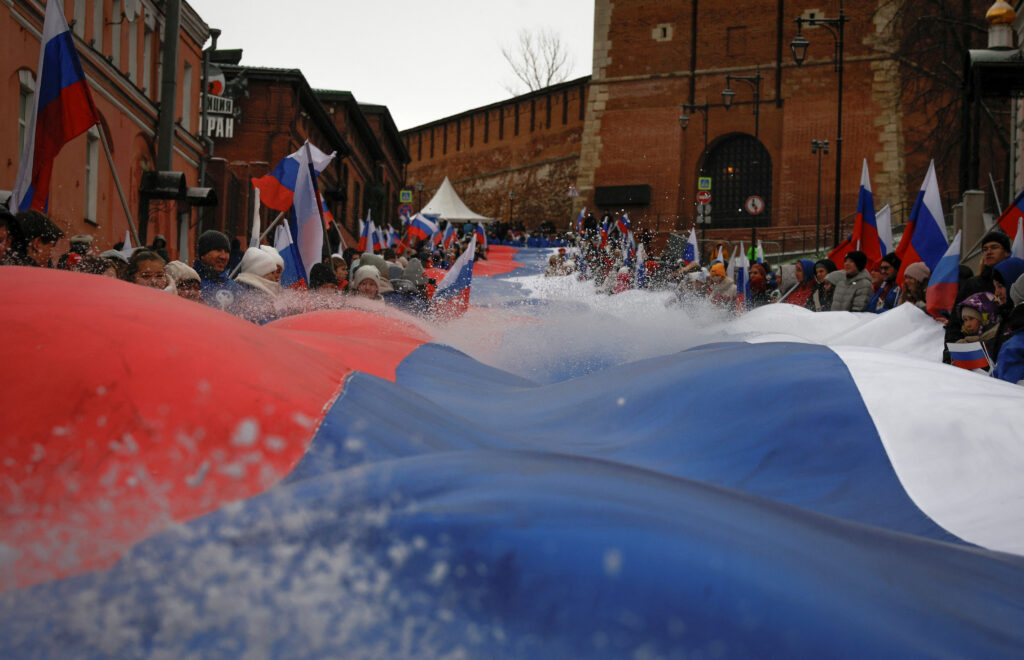In Russia, as in much of the post-Soviet space, the past is the present. From Ukraine, to Belarus, to Poland and Lithuania, historical narratives of communism, World War II, the Holocaust, and the Holodomor—Ukraine’s Terror-Famine—are being reviewed, revised, and in many cases manipulated to serve new ideological trends.
In Russia, the elephant in the room is Stalin’s repressions—quite possibly the largest yet least understood crime of the twentieth century. Despite its scale, outside a relatively small group of historical memory activists, the repressions are not a matter of national conversation. Following a brief period of revelations in the wake of perestroika, the fog of silence is thickening once again, pushing the memory of the events out of Russian consciousness, and with it—out of that of humanity.
This intentional policy of national forgetting could be viewed as a society-wide social experiment not unlike those undertaken in Soviet times. The trauma of the atrocities perpetrated during Soviet times has likely touched the family of virtually every person born in Russia in the 20th century. As many as 50 to 55 million people may have suffered in the terror and repressions of 1917 to 1956, including those who were killed, exiled, persecuted in politically motivated campaigns for petty disciplinary violations, sentenced to slave labor, forcibly displaced, or moved thousands of miles across the Eurasian continent—as well as their families, who lost all rights, were deprived of their homes, and were stigmatized as the parents, spouse, or children of an enemy of the people. In 1937, the bloodiest year of the regime, the government murdered an average of 1,000 of its own citizens every day. Every seventh Soviet citizen, if minors are included, or every fifth adult was a victim.
Tragedies on this scale produce massive traumatic impact on societies, so much so that their reverberations can be felt on the social level generations later. Yet in post-Soviet Russia the personal and national traumatic impact of Stalin’s repressions remains largely unaddressed. “Until now, if anyone mentions the victims, it’s as though they were killed by a natural disaster like an earthquake or a tidal wave,” Yan Rachinsky of the Russian human rights organization Memorial, the chief keeper of memory of Stalin’s repressions in Russia, told the Washington Post recently.
In fact, the Russian state has never decisively dealt with the issue of guilt and innocence of the repressions. In the absence of a legal framework to hold the perpetrators liable, Russian society has continued to live in something of a moral equivalency about the repressions. The unconsidered reaction that “if they arrested him, there must have been a reason” still exists. Within families, silence persists, and feelings of guilt, shame, and fear continue to keep the lid on questions and memories.
Meanwhile, some recent research into the transgenerational psychological effect of Stalin’s purges allows us to begin to consider the possible consequences of this silence. A joint Russian-American study conducted in the early 1990s demonstrated that the concealment of trauma in previous generations resulted in lower psychological and social functioning among grandchildren. Specifically, and most strikingly, if surviving family members tried to suppress the memory of the family member who had been taken away, the following generations had lower functional abilities. By contrast, families that preserved the memory of the missing had higher levels of functioning.
The authors also found that “a personal research effort into family history and the ability to actively protest political coercion were positively related to social functioning.” But in Russia, this impulse to research one’s history, so typical of the descendants of another tragedy of the 20th century, the Holocaust, is absent in the majority of the population.
That the memory of traumatic events may be transmitted through generations has also been demonstrated in recent studies of Holocaust survivors. Summarizing some of the findings in his Warped Mourning: Stories of the Undead in the Land of the Unburied, Alexander Etkind writes that “the second, and even third, generations following a social catastrophe manifest ‘subnormal’ psychological health and social performance, and this is claimed to be true both for the descendants of the victims and the descendants of the perpetrators.”
Among the most intriguing experiments are those that suggest that psychological trauma may be transmitted from generation to generation via epigenetic mechanisms. Summarizing the results of a 2015 study, which demonstrated that the genes of the children of Holocaust survivors showed alterations that made them more prone to stress disorders, researchers from New York’s Mount Sinai Hospital wrote that they provided “the first demonstration of transmission of pre-conception stress effects resulting in epigenetic changes in both the exposed parents and their offspring in humans.”
While we are still in the very early stages of exploring the epigenetic aspects of intergenerational transmission of psychological trauma, the very possibility of it suggests that the passage of time may not by itself be sufficient to wipe out the impact of those experiences—nor is a deliberate policy of forgetting. Traces of traumatic experiences may remain, influencing how we live our lives in the present, both individually and as a society.
This, of course, raises the question of how the psychological trauma of Stalin’s purges may be influencing Russian society today. The question is so big as to seem almost unaddressable at this stage—certainly in any kind of a systematic, fact-based way. Yet small-scale, private initiatives dedicated to commemorations, which continue to survive despite all odds, show just how powerful an act of personal remembrance may be, particularly when expressed publicly.
A few months ago, I came across my great-grandfather’s name, Leonty Briskin, in Memorial’s online database. One of my relatives, a grandson of Leonty’s, went to the local archive of the FSB, the successor to the KGB, and requested a copy of Leonty’s file. I soon had the scans in my inbox. Thanks to the organization known as The Last Address, our family was able to commemorate him, nearly 75 years after his death, by affixing a small memorial plaque to the wall of the house where he last lived. The sense of closure and healing that it produced was powerful.
When we Russians talk among ourselves, we tend to agree that the suspicion and fear that pervade Russian society—including, notoriously, Russian diasporas across the globe—are connected to the unexamined issues of the past: the fact that the millions of betrayals of colleagues, neighbors, and family members have gone unacknowledged and uncondemned; the realization that descendants of victims and perpetrators often continue to live side by side; the felt sense that we have internalized the fear of the previous generations and that it can’t but guide some of the choices we make in our lives.
The kinds of collisions and human drama that can occur in a society that has never addressed catastrophic traumas of the past were demonstrated recently in the story of Denis Karagodin. A grandson of a repressed peasant, Karagodin has been scrupulously researching the names of those who participated in the murder of his grandfather and documenting it on his blog.
As his research efforts—unexpectedly and uniquely successful—drew to an end, he received an emotional letterfrom a granddaughter of one of the perpetrators. Fortunately, in this case the two were able to find common ground. It helped that the granddaughter expressed genuine regret for the crimes committed by her grandfather and begged for forgiveness on his behalf. But stories of children and grandchildren dreaming of revenge against those who informed on their family also abound. So do those of descendants of perpetrators who remain openly proud of their forefathers’ activities or, at a minimum, insist that all the “digging in the past” must stop because, in their view, it may lead to acts of revenge or destabilize the country.
Today, the assault on Russia’s national historical memory continues. Memorial, the human rights NGO focusing on Stalin’s repressions, has now been declared a “foreign agent” by the Russian state. Memorial’s most recent groundbreaking move was to publish an online database with personal information of nearly 40,000 NKVD operatives who were part of the 1930s repressive apparatus. Yet, the “foreign agent” label almost always results in the cessation of operations, and Memorial is now fighting for survival.
Meanwhile, one way to preserve the memory of what happened during Stalin’s purges in Russia is for those of us touched by that history to insist on bringing to light our own families’ stories. We can and must share them with those around us and encourage others to do the same.
Although this individual action may seem too small and too personal against the enormity of the crime and the silence that surrounds it, in today’s world, personal acts can reverberate across the globe and touch those we never knew.
Today more than ever before, the preservation of the memory of what happened during Soviet times depends on individuals – both the Russians living inside Russia and members of Russia’s rapidly growing diaspora. That this power now rests with us seems fitting somehow for a country that for decades denigrated the role of the individual. Our only alternative is to allow ourselves to fall under the spell of silence.
Originally published as “Preserving the Memory of Stalin’s Repressions, One Person at a Time” by The Russia File, a Kennan Institute blog.










